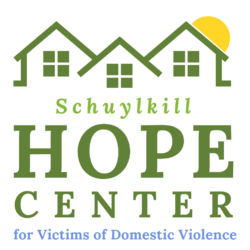Counseling Services

Individual Counseling
Hope Center’s goal is to provide counseling services that help victims of domestic and sexual violence move from “victim” to “survivor” to “thriver” in their lives and life choices, as they reach safety, peace, and self-sufficiency. Counseling is available through specially-trained counselors.
Participants learn about the dynamics of abuse; the long-term impact of abuse on the victim and/or children who experience or witness abuse; and they benefit from safety planning and referrals to community resources that can help victims be safe.
Under special circumstances, the agency is also able to arrange counseling at an alternative site from Hope Center’s facilities, such as churches, medical facilities, and prisons for adults.
*Hope Center also offers free and confidential services to relatives of domestic and sexual violence victims who are struggling with the trauma of what has happened to their loved one.
Hope Center’s counseling/advocacy is based upon a trauma-informed, empowerment, wellness-based helping method in which victims become increasingly able to take control of their lives.
Learn more about the counseling approaches practiced at Hope Center below…
Empowerment Counseling
The philosophical basis of empowerment counseling assumes that victims/survivors can determine what is best for their lives when offered support, advocacy, resources, and information. As the power between helpers and victims/survivors becomes equalized, the competence of victims is affirmed and they become able to acknowledge their power and authority to act. Empowerment counseling includes exploring the societal roots of abuse, and victims/survivors are encouraged to assist other victims, at both the individual and systems level, as a way of affirming their own strength. The goal of empowerment counseling is not only to return control to victims/survivors, but to involve survivors in assisting other victims and building a collective strength.
Victims are viewed as facing a situational problem rather than as individuals with predisposing psychological issues. The counseling component is not therapeutic because they are not sick, just in need of safety and help to deal with the effects of abuse and in need of support and information about the dynamics of abuse and community resources available. Hope Center views the staff/program participant relationship as reciprocal between equals, where complete confidentiality is provided. This philosophy guides all program services.
Trauma-Informed Care
Hope Center has always recognized that victims of domestic and sexual violence are in trauma, and we have adopted a trauma-informed care approach. While empowerment helps survivors regain their voice and sense of control and capability, a trauma-informed care approach assists victims of all types of trauma, especially children, in re-establishing a sense of safety and restoration of power. This approach relates to trauma as an experience, not as a diagnosis. Through this approach, we seek to help victims/survivors reframe experiences and memories in ways they can now manage and use as a resource and begin to view themselves as survivors/thrivers versus victims. This approach changes the paradigm from one that asks, “What’s wrong with you?” to one that asks, “What has happened to you?”
Trauma-specific interventions are designed to address the consequences of trauma in the individual and to facilitate healing. Programs generally recognize the following:
The survivor’s need to be respected, informed, connected, and hopeful regarding their own recovery;
The interrelation between trauma and symptoms of trauma (e.g., substance abuse, eating disorders, depression, and anxiety);
The need to work in a collaborative way with survivors, family and friends of the survivor, and other human services agencies in a manner that will empower survivors.
Group Counseling

Art as Healing
Throughout history, art has been used as a means of communication, self-expression, group interaction, and conflict resolution.
That is why, each week in the Safe House paint classes are offered to residents and their children.
Our staff instructor works with victims to create art as a means of liberation from past abuse, many of them working toward healing a variety of emotional wounds.
The painting above was created by a shelter resident who participated in Art as Healing.
“The black background signifies our past lives and the abuse and tribulations we experienced.
The flowers represent who we all are – for we will blossom and overcome everything.”
Creating Zen
Over the past several years, the Hope Center has partnered with Empower the Mind, LLC to provide Creating Zen, an evidence-based, body centered, trauma-informed intervention program.
Modules are provided by a specialized team, each member certified or licensed in their area of expertise, and incorporate yoga, cranial massage, education, meditation, and group discussion.
These healing methods not only address the immediate physical, psychological, and emotional effects of trauma but are also intended to reduce long-term impact and ultimately improve quality of life and functionality.
“It was very helpful – reminded me of skills I knew but did not practice before. Weekly sessions kept me on track!”
